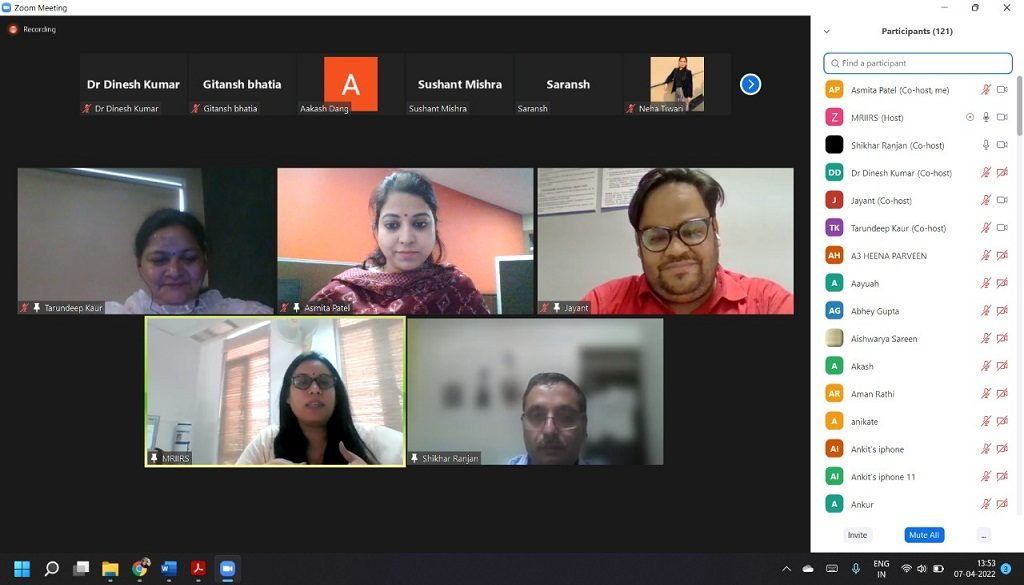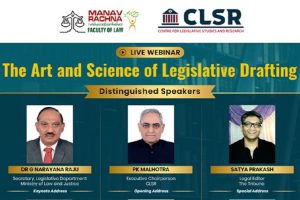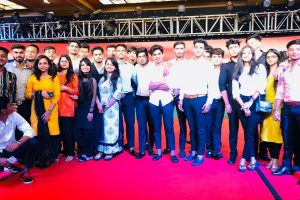National Webinar on “MITAHARA : GOOD FOOD FOR BETTER HEALTH”
The school of law, Manav Rachna University in collaboration with Molecular Bio Sciences Research Cluster Lab, Manav Rachna International Institute of Research and Studies organized a National Webinar titled “MITAHARA: GOOD FOOD FOR BETTER HEALTH” that was attended by 189 participants. The purpose of the webinar was to deliberate upon the intersection of national as well as international food safety and health concerns.
Dr. Dinesh Kumar – Assistant Director, Food Safety and Standards Authority of India and Mr. Shikhar Ranjan – Acting Secretary General, ISIL and Former Law Officer, Medical Council of India were the guest speakers for the day. The webinar was organized by Dr. Tarundeep Kaur, Ms. Akansha Ghose and Ms. Asmita Patel from School of Law, MRU and Dr. Kapila Kumar and Dr. Jayant Maini from the Molecular Bio Sciences Research Cluster Lab, MRIIRS.
Mr. Shikhar Ranjan started by pointing out the common and often undiagnosed issue of lacking nutrition amongst the populace and how often it can contribute to stress, tiredness and capacity to work, which overtime develops into serious illnesses. While not taking away from the efficacy of allopathy, he discussed the relevance of Charak Samhita : an ayurvedic science that is based on Indian philosophy and is also called ‘Science of Living’. It has been in existence since the beginning of time and has been described as Shasvata (eternal). Apart from giving information on medical conditions and their treatment; it also gives valuable information on geographical, social, and economic conditions of India. He drew inferences from it to connect with the present international and domestic policies on health and food safety. The speaker also pointed out the many challenges faced in the health arena today such as the universal contamination of the environment that impacts food and adversely affects the fundamental right to health of the people.
Dr. Dinesh Kumar then engaged the participants by highlighting the role of Food Safety and Standards Authority of India. He pointed out that it primarily involves the development of science-based Food Standards for food products and to regulate their manufacturing, storage, distribution, sale and import to ensure availability of safe and wholesome food for human consumption. He discussed the various mandates of FSSAI. Under the FSS Act, 2006, he stressed that every law student should be aware of the scientific knowledge of statutes for its better implementation, especially when the laws are concerned with the environment and food. He finally discussed how FSSAI works in collaboration with private universities where students can be trained at FSSAI.





